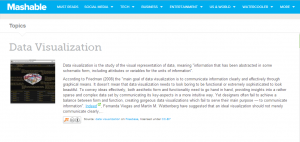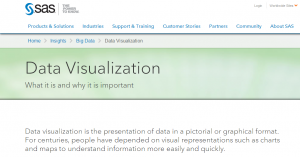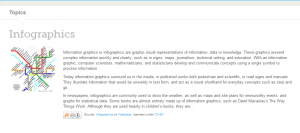What Is A Remix
Monday, March 24th, 2014This video gives you several examples of what types of remixes are there in the media. This video contains remixes of a guy dancing to songs, a man who lip syncs to a song, a scene from the movie, “Back to the Future,” with a different soundtrack then the movies own soundtrack, and many more types of remixes. However, I was surprised at the end of this video the makers of this video stated that, “These videos all made unauthorized use of copyrighted material.” Also at the end of this video it is said that the video was made by people from the American University in the Center for Social Media. I think copyright laws are laws where you cannot take footage from a show or movie without the people who made the movie’s permission. I thought that this video was really good exampling how each remix is different.




